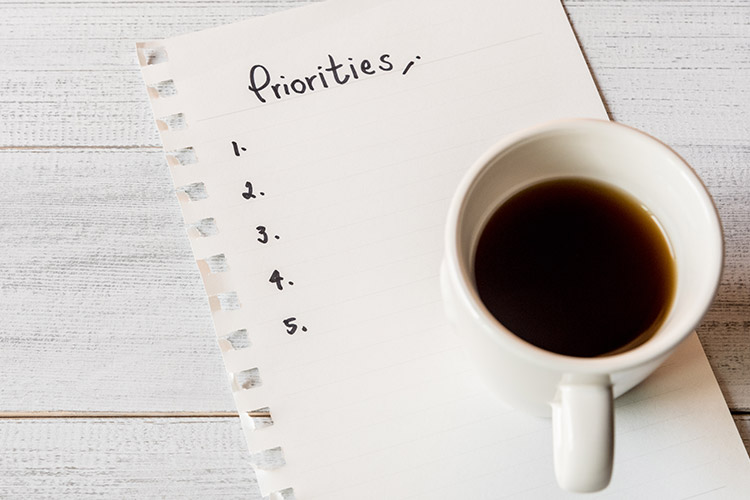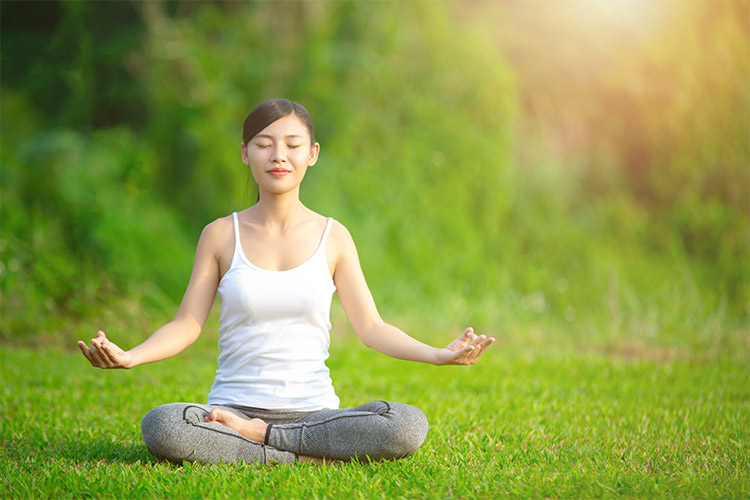Everyone has experienced stress at least once in his or her life, and that is definitely not an overstatement. Yet, when it feels like you are constantly drowning in stress, it is time to take a step back and make some changes. Here are 10 ways you can to manage and reduce your stress.
1. Diet
The proverbial saying goes “You are what you eat”, it stands true today because your diet will directly affect your cognitive processes and in turn how you feel. With a bad diet filled with processed food and sugar, you will tend to feel more sluggish and hence, reduced task-handling capabilities. This creates feelings of inadequacy, leading to more stress, further feeding this bad cycle.
Especially when facing day-to-day challenging tasks, the brain needs better nutrition than ever to meet the demand. When it comes to your diet, choose less refined carbohydrates, more proteins and vegetables.

3. Better sleep habits
A good night’s rest ensures better mood and productivity tomorrow. Without enough rest, you are likely to wake up feeling grumpy and irritable, making you feel more agitated and stressed. In order to achieve that, practice good sleep habits such as avoiding caffeine in the evening, reserving bedroom area for sleeping only and avoid phones 30 minutes before bed time.

4.Exercise
A sedentary lifestyle due to our desk-bound jobs will only make us more lethargic. By exercising, it bumps up your energy levels by pumping your body full of endorphins that combat stress, stabilizes mood and even improve your sleep quality in the long run.

5. Massage
Besides exercise, enjoying a massage will also release endorphins and other feel-good neurotransmitters like serotonin and dopamine. All these will aid in balancing your mood, combat muscle tension and pain, a common issue people face when under stress. In just 15 to 30 minutes – best if it’s in the comfort of your own home – feel all your worries melt away along with your deep-seated muscle knots.

6. Make time for yourself
In addition to lifestyle changes, it is important to put yourself first by having some “me-time”. It will allow you to focus on yourself, reflect and de-stress. “Me-time” can be anything, from treating yourself to a facial mask or a long, relaxing bath.

7. Prioritize
As much as we want to check everything off our to-do list or to complete our weekend errands, sometimes it is just not physically possible. Instead, set realistic and achievable goals for yourself so that you do not feel annoyed or discouraged. Setting goals gets you to organize and evaluate your tasks so you can prioritize the important things in your life and best maximize your time

8. Mindfulness techniques
Stressful thoughts can arise from dwelling on or revisiting past stressful situations and it might cause unnecessary anxiety because you are focusing too much on past negative emotions.
Once you start recognizing negative, stressful thoughts, you can now start to counteract against them through meditation or mindfulness techniques. They can help nurture the practice of being aware of your positive and negative emotions, thus making it easier for you to stop negative emotions from manifesting. Common techniques include mindful breathing (controlled, focused breathing) and when you are calmer, you can have better control of your emotions.

Bonus tip: Stay grateful & be positive
Last but not least, the best way to keep the positive energy going is to cultivate positive thoughts daily. By staying grateful, you re-model your thought process to focus on the good you have in your life. You can start by keeping a small ‘gratefulness’ notebook and jotting things down like ‘I am happy to have a roof over my head’ or ‘I am grateful to have my family with me’. This way, you are then actively seeking out the good in your everyday life.

[1] Maresh, C. M., Whittlesey, M. J., Armstrong, L. E., Yamamoto, L. M., Judelson, D. A., Fish, K. E., … & Castracane, V. D. (2006). Effect of hydration state on testosterone and cortisol responses to training-intensity exercise in collegiate runners. International journal of sports medicine, 27(10), 765-770.

